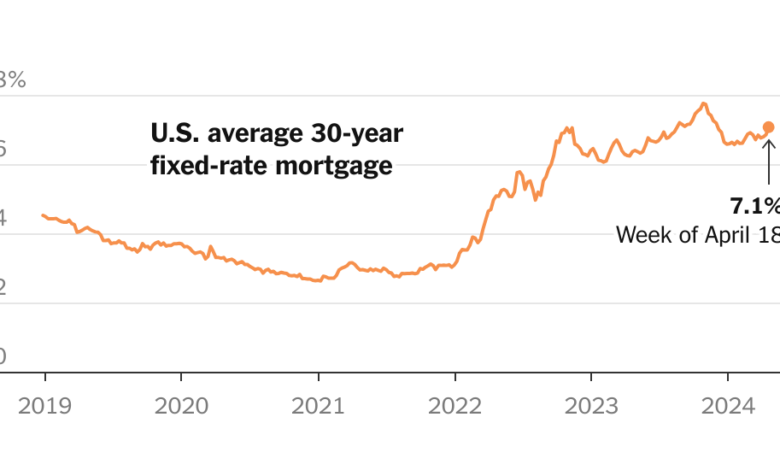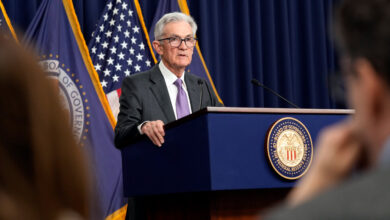U.S. Mortgage Rates Jump Above 7% for the First Time This Year

Mortgage rates rose above 7 percent for the first time this year, crossing a symbolically concerning threshold that threatens to keep millions of potential home buyers and sellers on the sidelines of a U.S. housing market that is increasingly showing signs of slowing.
The average rate on 30-year mortgages, the most popular home loan in the United States, rose to 7.1 percent this week, Freddie Mac reported on Thursday, the highest since November. Mortgage rates reached a recent high of nearly 8 percent late last year — a level not seen since 2000.
As mortgage rates have risen in recent months, making homeownership costlier for buyers, potential sellers who may feel locked into lower rates on their existing loans have been keeping their houses off the market, in effect pushing prices higher, too. Combined, the forces have fed into a broader feeling of frustration about the economy, at a time when inflation has remained hotter than expected.
“Potential home buyers are deciding whether to buy before rates rise even more, or hold off in hopes of decreases later in the year,” Sam Khater, Freddie Mac’s chief economist, said in a statement. “It remains unclear how many home buyers can withstand increasing rates in the future.”
At the same time, the market has slowed. Sales of existing homes fell by 4.3 percent in March and 3.7 percent from a year earlier, according to the National Association of Realtors.
In April 2021, mortgage rates were at about 3 percent, less than half the current rate. They began to climb that year and continued to rise in 2022 when the Federal Reserve started raising its benchmark rate in an effort to combat inflation. Although inflation has since cooled significantly, it’s still above the central bank’s 2 percent target.
The Fed has signaled in recent months that it may keep the cost of borrowing higher for longer amid stubborn inflation. The Fed’s benchmark interest rate is currently the highest it’s been in 22 years.
Mortgage lenders generally watch the 10-year Treasury bond, which are tied to mortgage rates, and expectations that the Fed will keep rates high has pushed up Treasury yields. The 10-year Treasury yield has soared since the start of the year, now sitting at about 4.6 percent.
The N.A.R. agreed to settle litigation last month that would eliminate the standard sales commission, a move housing experts say could bring down home prices. Sellers currently pay a 5 or 6 percent commission to a real estate agent, a cost that’s typically passed onto the buyer through a higher sticker price.



